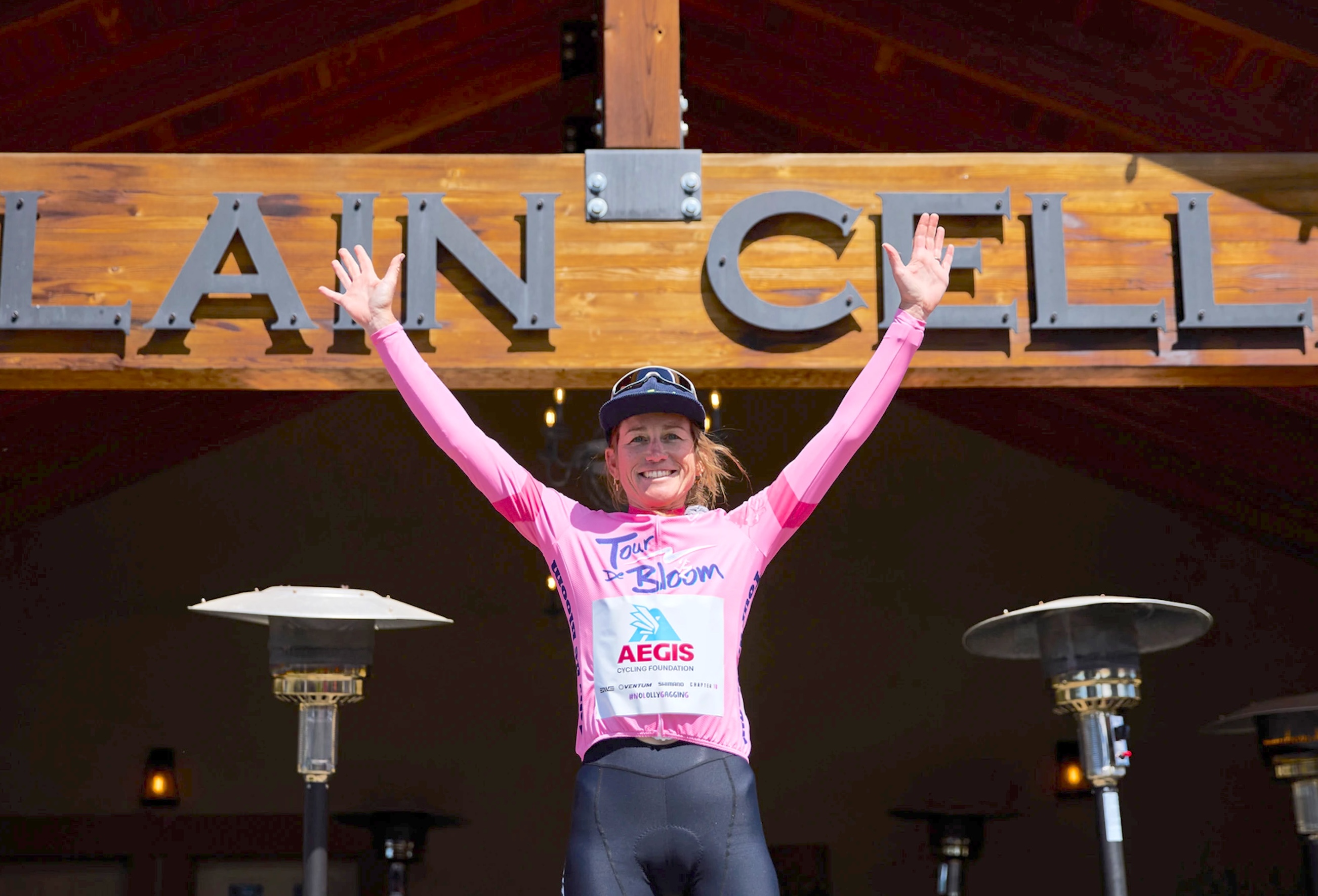Future Gravel: The re-visit with Ted King – How has gravel changed and what happens next?
'Gravel now is not what it was five years ago, and it's not what it's gonna be in five years'
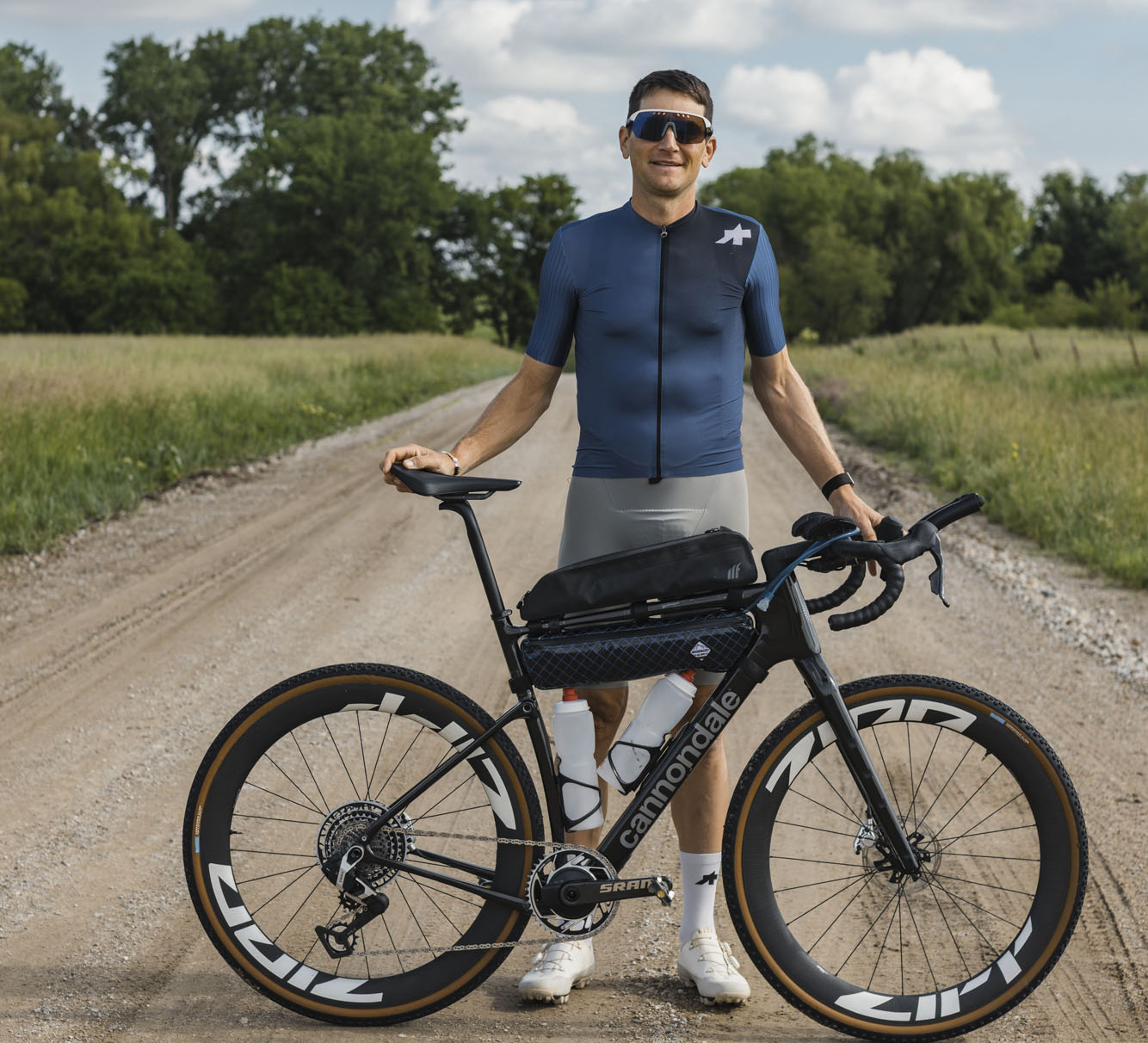
Five years ago, we ran a piece on Cyclingnews entitled 'Future Gravel'. It was an interview with Ted King, who discussed the explosive growth of the discipline over the previous five years and looked into his crystal ball to ponder how it might look in another five years.
Well, that point in the future is now the present, and King's comments are particularly fascinating in hindsight. Some of his predictions have proven to be bang on the money. Others have turned out to be somewhat wide of the mark.
"Oh wow," he says when we remind him he said there wouldn't be a UCI Gravel World Championships within five years – this autumn will see the fourth set of rainbow jerseys handed out.
King was something of a pioneer in making the switch from the straight-jacketed WorldTour to the freewheeling world of gravel, where races, riders, money, and just about everything else has skyrocketed in the past decade. The question that has troubled him is what impact that's having on the so-called 'spirit' of gravel.
In the build-up to gravel's premier event, Unbound, we got in touch with King to see if he'd like to revisit the predictions he made back in 2020, and if he'd like to venture any more for 2030. The night after he was inducted into the Gravel Hall of Fame, and the day before he was due to set out on the Unbound XL course, he kindly obliged.
UCI gravel
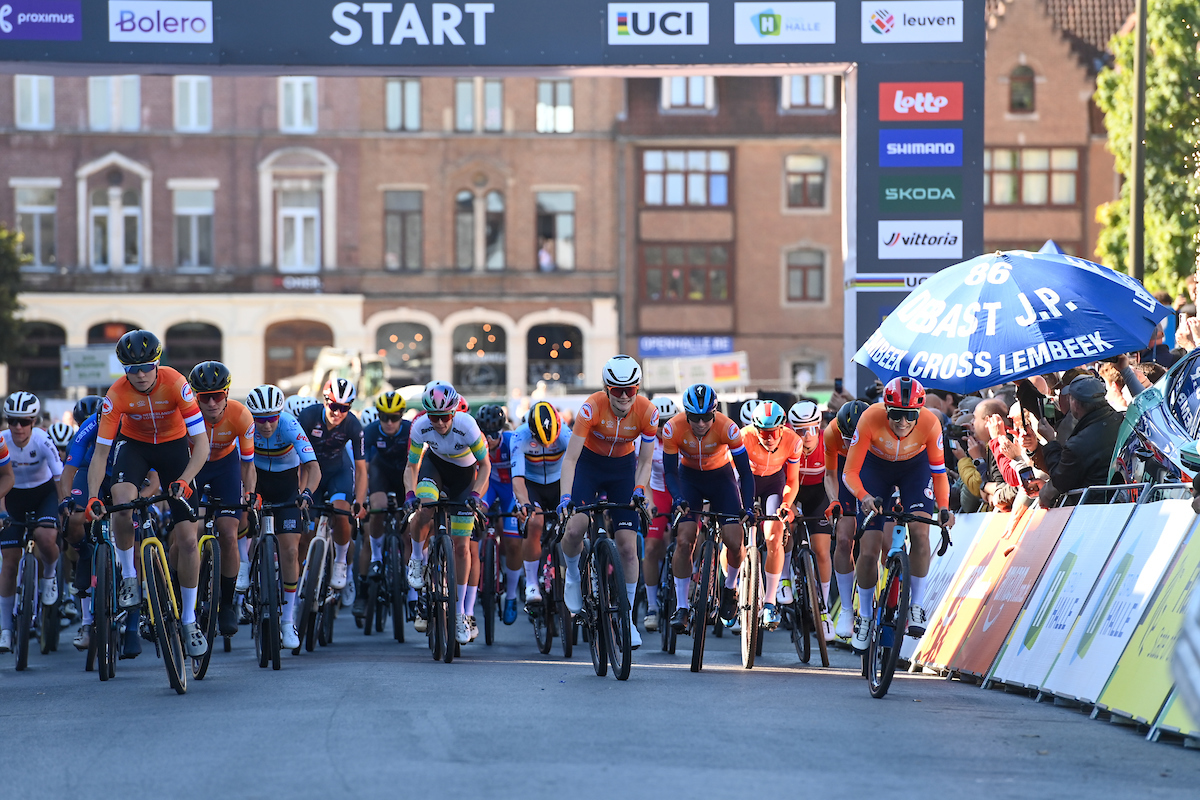
"I don't picture a World Championships in five years but probably there will be movement in that direction – the very controlled side of things, I mean." (Ted King in 2020).
Cyclingnews: Let's start with that World Championships quote, as it's one of the things that has happened a lot sooner than you were expecting. We've had three Worlds already, you've ridden one of them…
The latest race content, interviews, features, reviews and expert buying guides, direct to your inbox!
Ted King: I'll be honest, I really enjoyed the UCI Worlds. I think part of my hesitation was having the organization of the UCI, a governing body, and so on and so forth, whereas I like the cavalier nature of gravel, how it's sort of this counterculture. The reality is that as much as we think that's the case, it has professionalized, and with that level of professionalization, of sponsorship, of industry support, it needs to move forward and it needs to have rules, governing bodies and, quite frankly, World Championships.
I sort of wanted to keep gravel separate from just the fittest person winning, and when you look at the World Championships results and the top 20 are just current WorldTour pros, it is a bit of a bummer. But then again, if Matthew van der Poel with his fan base is going to win the world title and draw more attention and sponsorship dollars and more people onto bikes, maybe that's not such a bad thing.
CN: How do you feel about the UCI's involvement in gravel and the brand of gravel racing it has produced?
TK: I feel like North America is the birthplace of gravel, but the UCI has the ability to lead the charge to introduce Europe to gravel and quite frankly introduce the world to gravel because when you look at the UCI Gravel World Series it's all over the global map. The UCI races are very controlled and people are there to race, whereas a lot of the North American races are still very participatory.
I don't know how many people are going to stumble upon a UCI race and say, 'oh, I'm going to get into this thing that seems really fun'. It's more like 'I'm going to do the UCI race because I'm competitive and I want to go to the World Championships'. So the UCI races certainly lend themselves more towards a road race field. It's a whole other conversation but road racing is dead in North America, and I think it has a lot to do with the sort of hyper-competitive culture. So are we prematurely witnessing the end of gravel? No, not yet, because there are still so many people who just love rocking up and having a fun time.
Professionalization
"What's nice is how few rules there are, but that becomes a double-edged sword. As races get more competitive, at what point do you have to eliminate team tactics, aero bars, and points systems?"
CN: Even in the US, the racing is being taken far more seriously, and we've already seen some of the things you mentioned – aero bars have been banned at Unbound, who also have a no-draft rule. How does that double-edged sword feel now?
TK: We're in the midst of it shaking out. Gravel now is not what it was five years ago, and it's not what it's gonna be in five years, so my hope in all of these predictions is that we're making the right decisions for the long run. I think what I was probably alluding to five years ago was like, we've got to keep it a little more loosey-goosey, just, you know, have an all-out race. What I still love about gravel racing, and this hasn't changed, is that the ones that I seem to enjoy the most are the ones that feel like a massive group ride – you're out there with your buddies, you're riding really hard, and whether you finished first or 15th, you're perfectly happy. When there is such a hyper-focus on where you are in the overall standings and points, it's not as interesting.
CN: That said, your 2024 was all about trying to bring your old WorldTour regime into gravel, working with a range of coaches and nutritionists, steering clear of the beers, trying to be as fast as possible. That was sort of surprising.
TK: I recognize that it could be seen as very contradictory. I did that because I didn't want to be a stick-in-the-mud saying 'gravel needs to be old school' and 'you need to drink a beer before the race' and 'you need to stop training'. That's literally what I've done since 2016, just having fun with it. But there was also a personal itch of like, I want to show these kids, who are literally half my age, and see where I could stack up if I went back into this perspective. I'm in a very different place than I was in the WorldTour, being a father of two, being a husband. I also wanted to show what could be done for dads and parents.
CN: How did that work out?
TK: A good summary is I was fitter in 2024 than I'd been in probably the previous six, seven, eight years. My times were way faster, my FTP was better, yada yada yada… across the board things were better. But that included the competition. So I wouldn't call the year lackluster – I won a race, I was in the party a few times, but yeah, you show up at the big races and it's just a sea of people who are capable of winning.
CN: But did you enjoy it as much?
TK: I really enjoyed the process. It was a fun throwback to a lifetime ago of being focused and disciplined. It was a good sort of reality check. There's so much that I'm saying over this whole conversation that I recognize can be very contradictory.
Teams and wages
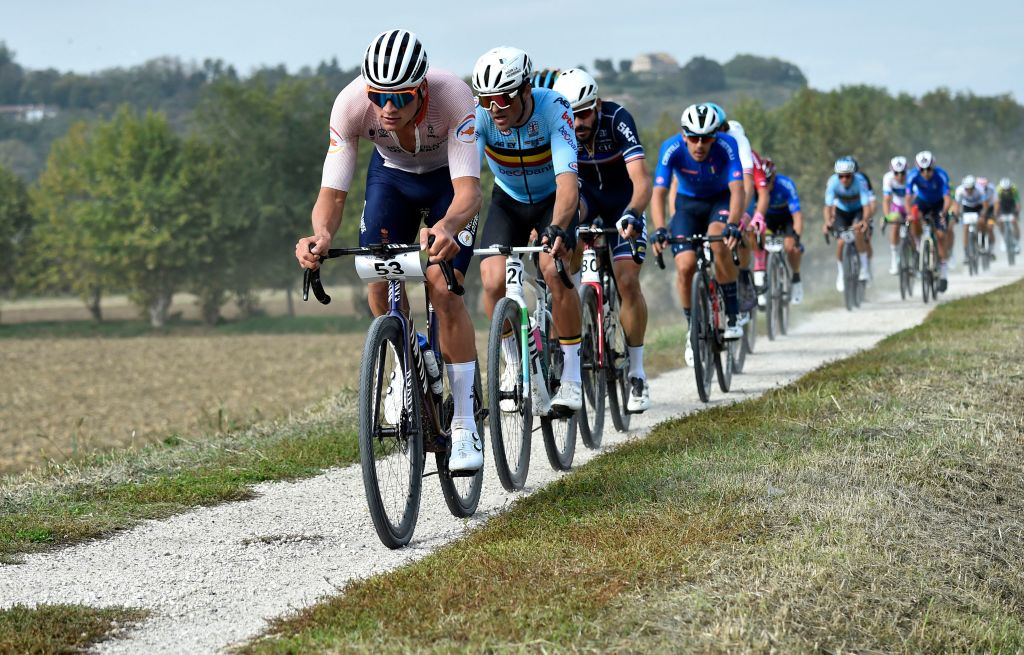
"I don't know if we'll ever get to the point where individuals on teams are paid."
CN: I'm not super well versed in the economics of gravel, but Greg Van Avermaet has a gravel team, Thomas De Gendt is on a gravel team, and multiple bike brands have gravel teams. There are teams everywhere.
TK: Yeah, and I remember thinking that from the perspective of what a pro road team is, so I guess my point is I didn't think we were going see teams of 25 riders, because what I still like about the competitive side of gravel racing is we're still characters, right? People like to follow the characters. The life of a domestique is pretty anonymous and so I was predicting that we're not going to see teams of 25 guys showing up with Greg Van Avermaet as team leader and then seven domestiques around him. Maybe I worded it poorly five years ago, but geez, I certainly also would not have guessed we'd have the priority of teams we have now.
There was a Cycling Weekly article recently where the headline was Van Avermaet saying you can't win Unbound alone, implying that you need a team behind you… and I'm like, I hate that, to be honest. I hate that mentality. I'm such a fan of the privateer nature of the sport. I want people to be able to show up. I mean, come on, how can that be in any way incentivising to an 18-year-old kid who wants to get into the sport? 'Oh, I need a team? Why am I gonna show up?' I'm sure Greg wasn't saying it negatively, but I just really don't like the message it seems to send.
TV coverage
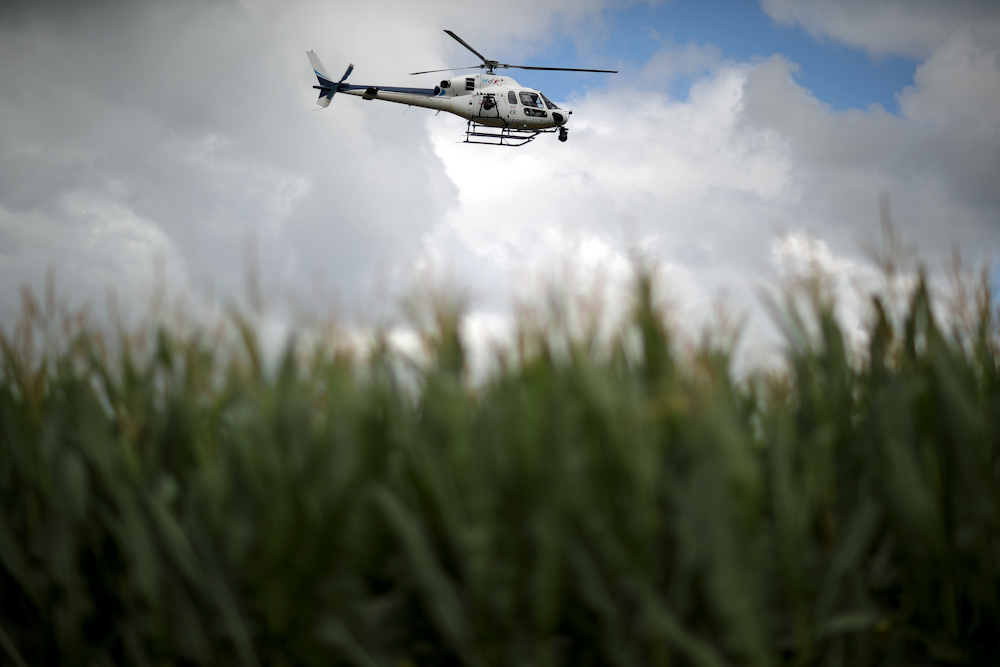
"To be left in the dark is better than a helicopter overhead and a motorbike in front. That's just a world I don't think needs to come to gravel."
CN: That quote is less a prediction and more a 'please god no'. But this year Unbound is getting the full live streaming treatment… From your quote, I guess that's still the way you feel, or is it not?
TK: I think I should recognize that, you know, don't bite the hand that feeds you. People want to see this sport. That said, I would describe the television coverage in gravel races as not highly polished. So much of the best content is still athlete-produced – riders with cameras on their bikes or phones and literally sort of live streaming on the go, creating stories mid-race. I still like that element. It's funny, actually watching gravel racing is not appealing to me. I will watch every stage of the Giro but I don't really want to be able to turn on Max or HBO or TNT and be able to watch a gravel race, even if I feel like there's also an inevitability to that when you have the likes of Van der Poel showing up – he could ride a unicycle and people are gonna tune in.
Consolidation and races
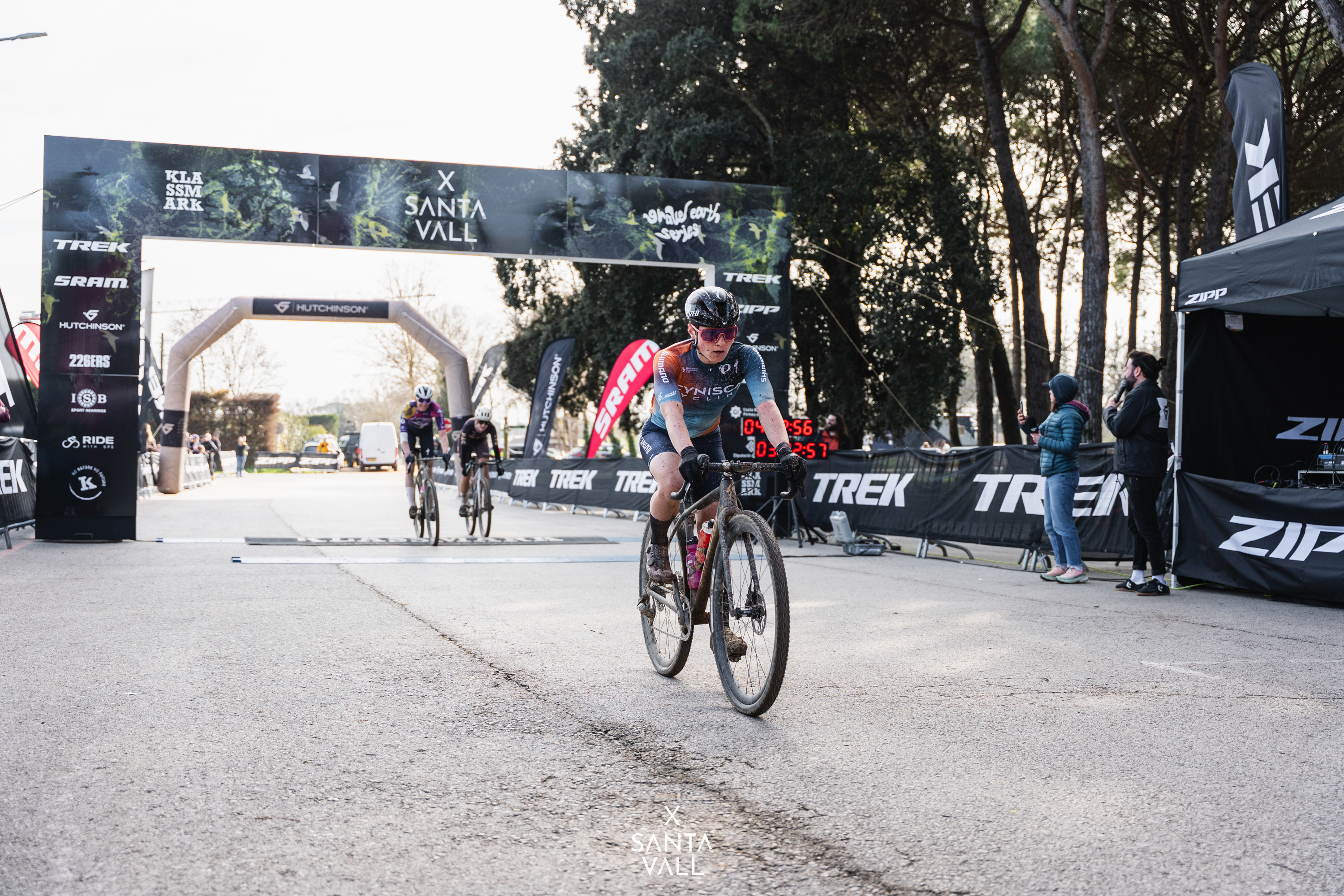
"We live in a world of consolidation. It's rare that events exist in perpetuity small and independently. I would not be surprised if there was some consolidation in five years. I don't think it would be a coast-to-coast series, but maybe a pocketed series in the US. I also think there'll be a lot more events outside the US."
CN: You spoke a lot about consolidation last time, and this was pretty much bang on the money...
TK: Yeah, that one seems to be fairly accurate. Life Time coming into the sport in 2021 consolidated the scene here in North America in a major way. Then Gravel Earth was born around 2022, which brought pre-existing events into a series, and the UCI has done a similar thing. From the perspective of the North American scene, it's harder and harder to create a grassroots event because the calendar is so busy, it's hard to get the attention, the right athletes, and the notoriety to draw people in and make it worth in the first place.
In a way, gravel is a victim of its own success in that there are so many events to choose from that you see a downtrend in a lot of individual registration numbers. There was a weekend recently where, man oh man, there were two UCI races – there are only three UCI races in North America – as well as the Whoopie 50 and BWR California. No wonder that every event saw lower registrations because athletes were all over the US map.
'350 is the new 200' – A future of ultras, bike packing, and FKTs
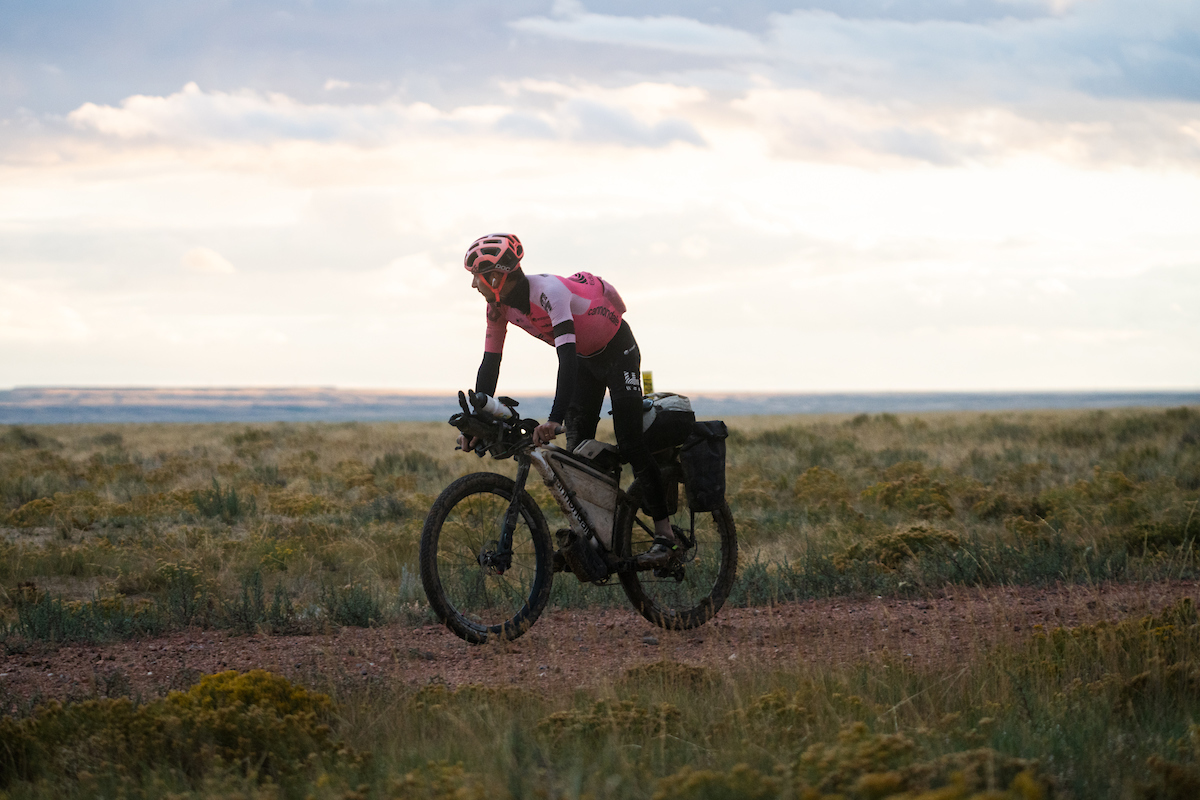
CN: You're doing the XL Unbound this year. We've seen headlines recently that the 350 is the new 200, that the flagship distances have become so competitive that the ultra distances are where that original spirit of gravel has gravitated towards. Was that the reason behind your choice?
TK: Yes, to a degree. I love coming to Emporia. I love being in this community in the birthplace of gravel. If I look back at 2024 as a year in which I poured everything into it and got a respectable finish in the high 20s, I recognise I'm not there for the win anymore. But I still love being competitive.
CN: The logical extension of that is multi-day events, and then you're into the realms of bikepacking. You've done more of that recently and I wonder whether that world of solo multi-day riding and FKT-chasing might be a future for the cavalier brand of off-road cycling you speak of.
TK: That seems to be the case. Those events are great because they're so self-reliant, as gravel was a number of years ago. These days we're creating how-to videos about going through the Unbound feed zone most efficiently. That's crazy. Bikepacking is completely self-reliant, it has a huge element of adventure, it's just you and the challenge ahead. So yes, there is a very strong link in ethos to OG gravel of 10, 20, 30 years ago. Who knows? Are we going to make bike packing super duper competitive? I wouldn't be surprised if we see more and more fast people show up.
CN: The whole FKT thing is a bit of a wild west, isn't it, in terms of who is the official gatekeeper, and how you govern something as it grows – as with gravel. Lachlan Morton's Great Divide record didn't technically count in the eyes of some, as he had a film crew following him…
TK: That was really interesting. The old-school bike packers have a very passionate culture, it's a stick-to-your-guns, OG ethos, and I can't disagree. I've been on the knife's edge deep into a bikepacking race, totally emotional, completely ragged. I remember being 970 miles into a 1000 mile race, leading it by hours, and I was thinking at the time, 'if my wife drove by me right now, I would quit in a heartbeat'. The point is that the emotional support you gain from a phone call, from knowing somebody's there, knowing that you have a potential bailout, it's completely legit. So as much as it seems antiquated, that's a thing. That said, what Lachlan did is extraordinary. So it's a funny balance to which I don't have any correct answer.
CN: One of my questions was going to be, where does the sport go from here? What does it look like in 2030? Have we already sort of answered that? What else might happen next?
TK: I think so – exactly as we were saying, more attention to the longer events, perhaps as people age up or lose competitiveness in the gravel races that are becoming more like road races. I mean dot watching I think is really fun. It's like watching paint dry, but it's watching fun paint dry, you know. More generally, I think the trend that we see now is a good short-term prediction, which is more competitive events and an inevitable inevitable consolidation, as people are having to really divide their time, choosing which events they need to focus on as a result of the importance of these points systems. I recognize I'm talking about the, the very front of the race and not the masses, but that being said, the masses follow where there are popular events.
The optimist

"The optimist in me says that gravel will stay a gritty, different independent sport rather than bowing to the knees of dollars."
CN: That was one of more striking quotes from last time. Does that optimist in you still live on?
TK: I would still say something to that effect. I want nothing more than for gravel to succeed in drawing more people into it. Here's a funny aside, which might also make something of a point. Last night I was inducted into the Gravel Hall of Fame. Five years ago, I never would have guessed such a thing would come into existence. And as much as we think of gravel as young, one of the inductees last night was creating off-road gravel races in the Flint Hills in Emporia in the 1980s.
The amount of excitement and enthusiasm and passion of this group is completely deserving of a Hall of Fame. So it's neat to see that that exact thing that makes it unexpected to ever have a Hall of Fame, is the thing that makes it worthy of a Hall of Fame. It's a tremendous honor for me.
CN: You're clearly still very in love with the sport…
TK: That I am. I want to see it succeed, right?
CN: Thanks very much for your time today.
TK: See you in 2030.
Subscribe to Cyclingnews for unlimited access to our coverage of Unbound 2025. Don't miss any of the breaking news, reports, analysis and more from the biggest gravel race of the season, reported by our journalists on the ground in Kansas. Find out more.
Patrick is a freelance sports writer and editor. He’s an NCTJ-accredited journalist with a bachelor’s degree in modern languages (French and Spanish). Patrick worked full-time at Cyclingnews for eight years between 2015 and 2023, latterly as Deputy Editor.
You must confirm your public display name before commenting
Please logout and then login again, you will then be prompted to enter your display name.

